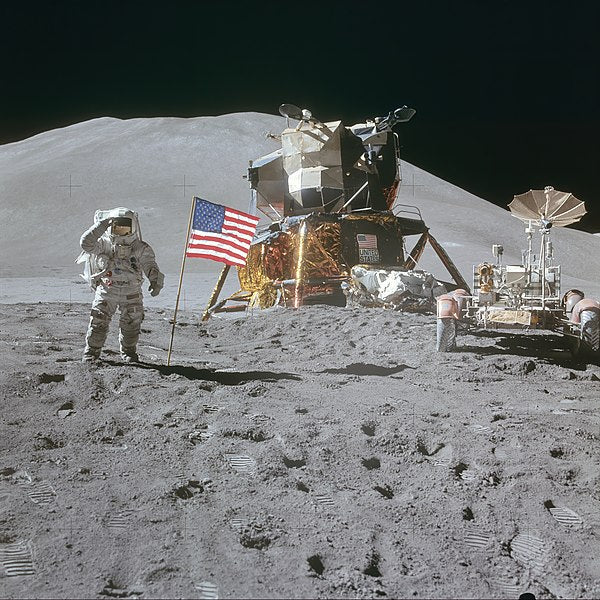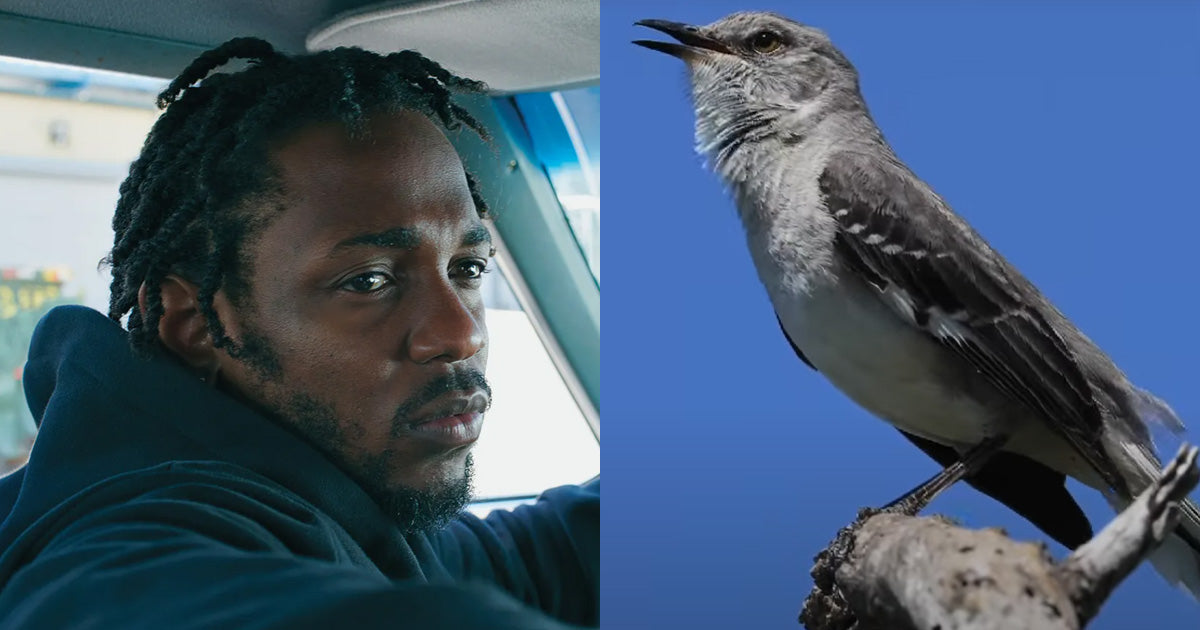Are you old enough to remember the Apollo 15 moon landing? If so, you're lucky to have witnessed something so momentous, it must have been incredible! Don't worry if you're younger though – there's plenty of scientific achievements to look back on and be excited about; we'll give you the lowdown on some of them today.
We do, however, have to deal with what some have called "cancel culture"- but there's some signs that Gen Z might be changing that. Also, any anxiety that cancel culture and the COVID pandemic brings can be tempered by ancient Stoic wisdom and our fabulous Think Inc. Academy instructors.
Apart from all that good stuff, we bring you news of a game-changing renewable battery and a train that can outrun a plane- but do you dare catch it?
As always, let us know about any interesting news you come across – we love to hear from you!
Warm regards,
Suzi
We do, however, have to deal with what some have called "cancel culture"- but there's some signs that Gen Z might be changing that. Also, any anxiety that cancel culture and the COVID pandemic brings can be tempered by ancient Stoic wisdom and our fabulous Think Inc. Academy instructors.
Apart from all that good stuff, we bring you news of a game-changing renewable battery and a train that can outrun a plane- but do you dare catch it?
As always, let us know about any interesting news you come across – we love to hear from you!
Warm regards,
Suzi
COVID BLUES? STOICISM CAN HELP

We're pretty proud of our two Think Inc. Academy instructors who spoke on ABC Radio National last week about how Stoicism can prove useful in dealing with all the difficulties that come with COVID.
Dr Matthew Sharpe is an Associate Professor of Philosophy at Deakin Uni and Dr Edward Spence is an honorary associate in the Department of Philosophy at the University of Sydney and author of Stoic Ethics and Technology in the Pursuit of Wellbeing (which is coming out in October). Nancy Sherman, a Professor of Philosophy at Georgetown University was also a guest on the show.
We can't recommend this episode enough – it only goes for about 25 minutes, and it's all about how we can apply this ancient wisdom to today’s world. There's also some discussion of "Broicism", how women factor into Stoicism, and the topic of Dr Spence's forthcoming book: how Stoicism may help us deal with AI in the future.
In our course How to Be a Stoic: Ancient Wisdom for a Happier Life not only will you learn how to make the most of what life throws at you, and let go of the things you cannot change, but you'll also be able to get into some deep, thought-provoking discussion with these two experts in the field. We'd love to see you there, so register today!
Dr Matthew Sharpe is an Associate Professor of Philosophy at Deakin Uni and Dr Edward Spence is an honorary associate in the Department of Philosophy at the University of Sydney and author of Stoic Ethics and Technology in the Pursuit of Wellbeing (which is coming out in October). Nancy Sherman, a Professor of Philosophy at Georgetown University was also a guest on the show.
We can't recommend this episode enough – it only goes for about 25 minutes, and it's all about how we can apply this ancient wisdom to today’s world. There's also some discussion of "Broicism", how women factor into Stoicism, and the topic of Dr Spence's forthcoming book: how Stoicism may help us deal with AI in the future.
In our course How to Be a Stoic: Ancient Wisdom for a Happier Life not only will you learn how to make the most of what life throws at you, and let go of the things you cannot change, but you'll also be able to get into some deep, thought-provoking discussion with these two experts in the field. We'd love to see you there, so register today!
HAS CANCEL CULTURE PEAKED?
On the topic of staying happy, it can be pretty challenging if you feel like you can't express your opinion lest you run the risk of losing your job or tarnishing your reputation. A recent study found that 62% of Americans have political opinions they're scared to share, and we posit it would be a similar figure in Australia.
While some debate whether cancel culture actually exists, there's no denying that there was a massive culture shift around 2013. Our friend Jonathan Haidt, and Greg Lukianoff, wrote about this phenomenon in their groundbreaking book The Coddling of the American Mind.
When the “iGen”, or internet generation (born around in or soon after 1995), arrived on university campuses they pushed for radical reforms such as safe spaces and trigger warnings. Since then these reforms have spread to a whole range of institutions, and many feel like this has had a chilling effect on freedom of speech and expression. But recent polling suggests cancel culture has reached its peak and may be on the decline.
Consultancy firm Morning Consult polled a range of Americans about their views on cancel culture, and surprisingly Gen Z (13-24 year olds), much like baby boomers, have a negative opinion about the cultural phenomenon that that’s led to the ostracism (or "cancellation") of public acts, statements, individuals or entities. Millennials, on the other hand, are less likely to see cancel culture as a bad thing. This is pretty much in line with Jon Haidt and Greg Lukanoff’s findings.
We'd like to see the results of a similar poll in Australia. But in your experience, have you noticed a marked difference in how Milennials and "Zoomers" react to cancel culture? Let us know, we are curious folk.
While some debate whether cancel culture actually exists, there's no denying that there was a massive culture shift around 2013. Our friend Jonathan Haidt, and Greg Lukianoff, wrote about this phenomenon in their groundbreaking book The Coddling of the American Mind.
When the “iGen”, or internet generation (born around in or soon after 1995), arrived on university campuses they pushed for radical reforms such as safe spaces and trigger warnings. Since then these reforms have spread to a whole range of institutions, and many feel like this has had a chilling effect on freedom of speech and expression. But recent polling suggests cancel culture has reached its peak and may be on the decline.
Consultancy firm Morning Consult polled a range of Americans about their views on cancel culture, and surprisingly Gen Z (13-24 year olds), much like baby boomers, have a negative opinion about the cultural phenomenon that that’s led to the ostracism (or "cancellation") of public acts, statements, individuals or entities. Millennials, on the other hand, are less likely to see cancel culture as a bad thing. This is pretty much in line with Jon Haidt and Greg Lukanoff’s findings.
We'd like to see the results of a similar poll in Australia. But in your experience, have you noticed a marked difference in how Milennials and "Zoomers" react to cancel culture? Let us know, we are curious folk.
RUST NEVER SLEEPS

Most of us love the idea of renewable energy and using less fossil fuels, but renewable energy has one obvious pitfall: the storage. Storing electricity when the sun isn't shining and the wind isn’t blowing can be very unreliable, and also very expensive.
Boston start-up Form Energy Inc., may have the solution. They’ve reinvented the iron-air battery, technology that we’ve had for decades but has never really been commercialised.
The company’s CEO is renowned battery maven Mateo Jaramillo, who developed Tesla’s famous Powerwall. His company has made a prototype battery, nicknamed the Big Jim (what a great name), which is filled with 18,000 pebble-size pieces of iron.
Unlike lithium-ion batteries which are used in most of today’s electric vehicles and power grids, these iron batteries do not need nickel, cobalt, lithium and manganese to store the energy. Iron is abundant, safe, cheap and easily recycled. The US and Australia are iron rich, meaning we wouldn't have to rely on foreign imports. It sounds like a win for the economy and for the environment, what do you think?
Boston start-up Form Energy Inc., may have the solution. They’ve reinvented the iron-air battery, technology that we’ve had for decades but has never really been commercialised.
The company’s CEO is renowned battery maven Mateo Jaramillo, who developed Tesla’s famous Powerwall. His company has made a prototype battery, nicknamed the Big Jim (what a great name), which is filled with 18,000 pebble-size pieces of iron.
Unlike lithium-ion batteries which are used in most of today’s electric vehicles and power grids, these iron batteries do not need nickel, cobalt, lithium and manganese to store the energy. Iron is abundant, safe, cheap and easily recycled. The US and Australia are iron rich, meaning we wouldn't have to rely on foreign imports. It sounds like a win for the economy and for the environment, what do you think?
TRAIN FASTER THAN A PLANE

China recently unveiled a train with a top speed of 600 km/h, making it the fastest ground vehicle in the world!
In some cases it’s even faster than a plane, getting passengers from Beijing to Shanghai in 2.5 hours, a trip that usually takes 3 hours by plane. That’s over 1,000km in 2.5 hours!
Meanwhile the ancient NSW government trains get us to Newcastle, which is only 160km away from Sydney, in the same amount of time Get your act together Transport NSW!
Maybe we need a maglev train like the Chinese. Magnetic levitation trains work by using electro-magnetic force to levitate above the track. This lack of friction between the train and the tracks means these trains can absolutely smash the speeds of other high-speed rail or airplanes, and does so without making a peep.
Would you be willing to travel on one of these or are they a massive death trap?
In some cases it’s even faster than a plane, getting passengers from Beijing to Shanghai in 2.5 hours, a trip that usually takes 3 hours by plane. That’s over 1,000km in 2.5 hours!
Meanwhile the ancient NSW government trains get us to Newcastle, which is only 160km away from Sydney, in the same amount of time Get your act together Transport NSW!
Maybe we need a maglev train like the Chinese. Magnetic levitation trains work by using electro-magnetic force to levitate above the track. This lack of friction between the train and the tracks means these trains can absolutely smash the speeds of other high-speed rail or airplanes, and does so without making a peep.
Would you be willing to travel on one of these or are they a massive death trap?
50 YEARS SINCE APOLLO 15

Last Monday marked the 50th anniversary of the Apollo 15 moon landing- are any of our readers old enough to remember it? And for those under the age of 25, do you even know what the Apollo 15 is?
At Think Inc. we're all about celebrating rational thought, education and getting excited about science. This anniversary shows just how far we’ve come in 50 years.
For example, only recently astronomers were able to observe a circumplanetary disc for the first time! A circumplanetary disc is the swirl of gas, dust, planetesimals, asteroids or collision fragments in which moons are born. This young star system (PDS70) is a baby at only 5 million years old, making its two planets even younger. The two exoplanets are still in the process of being formed, so they provide scientists with a unique opportunity to observe planet and satellite formation.
What other incredible discoveries will we make in the coming half century?
At Think Inc. we're all about celebrating rational thought, education and getting excited about science. This anniversary shows just how far we’ve come in 50 years.
For example, only recently astronomers were able to observe a circumplanetary disc for the first time! A circumplanetary disc is the swirl of gas, dust, planetesimals, asteroids or collision fragments in which moons are born. This young star system (PDS70) is a baby at only 5 million years old, making its two planets even younger. The two exoplanets are still in the process of being formed, so they provide scientists with a unique opportunity to observe planet and satellite formation.
What other incredible discoveries will we make in the coming half century?
THE STRANGE SOUNDS OF IO
Another recent achievement is that we can now hear Jupiter’s volcanic moon, Io!
Jupiter has the most powerful magnetic field of all the planets in our solar system, and Io finds itself in a gravitational tug of war between Jupiter and the other two large moons. This pulling causes massive internal heat which leads to hundreds of volcanic eruptions.
Recently NASA worked out that when the Juno spacecraft is in the right spot, it can pick up on these radio waves caused by the eruptions. It's not quite music you can dance to, but it’s definitely very cool and you should have a listen for yourself.
Jupiter has the most powerful magnetic field of all the planets in our solar system, and Io finds itself in a gravitational tug of war between Jupiter and the other two large moons. This pulling causes massive internal heat which leads to hundreds of volcanic eruptions.
Recently NASA worked out that when the Juno spacecraft is in the right spot, it can pick up on these radio waves caused by the eruptions. It's not quite music you can dance to, but it’s definitely very cool and you should have a listen for yourself.
PHOTO OF THE WEEK

"Too beautiful not to share" says David Sinclair, and we agree. This is a section through a home-grown human brain, engineered to control for ageing.
This image was captured by Jae-Hyun Yang, an amazing postdoc at the Sinclair Lab. The young scientists say staining the mini brains in different colours help them to understand brain ageing in 3D.
This image was captured by Jae-Hyun Yang, an amazing postdoc at the Sinclair Lab. The young scientists say staining the mini brains in different colours help them to understand brain ageing in 3D.



Leave a comment
This site is protected by hCaptcha and the hCaptcha Privacy Policy and Terms of Service apply.